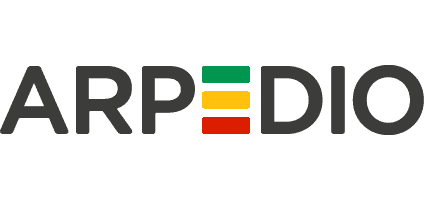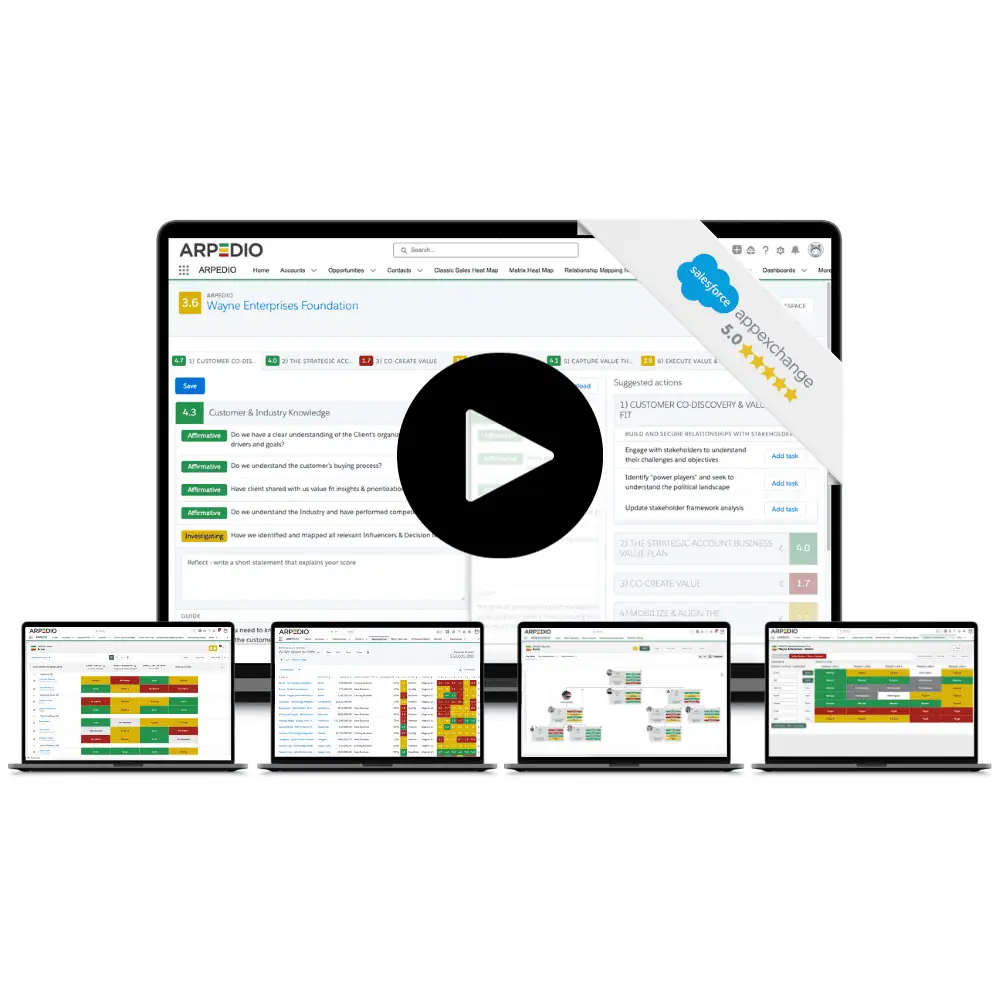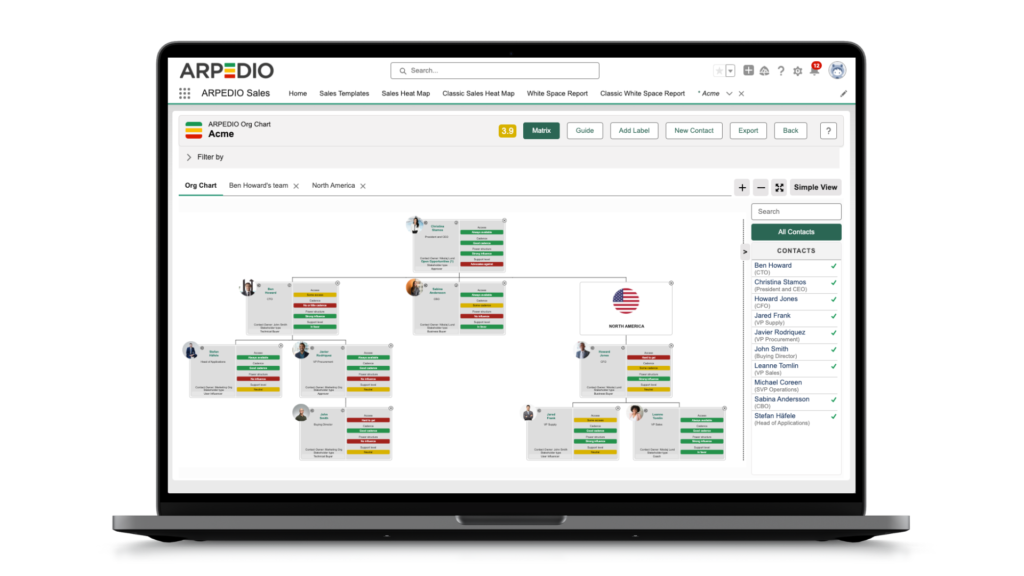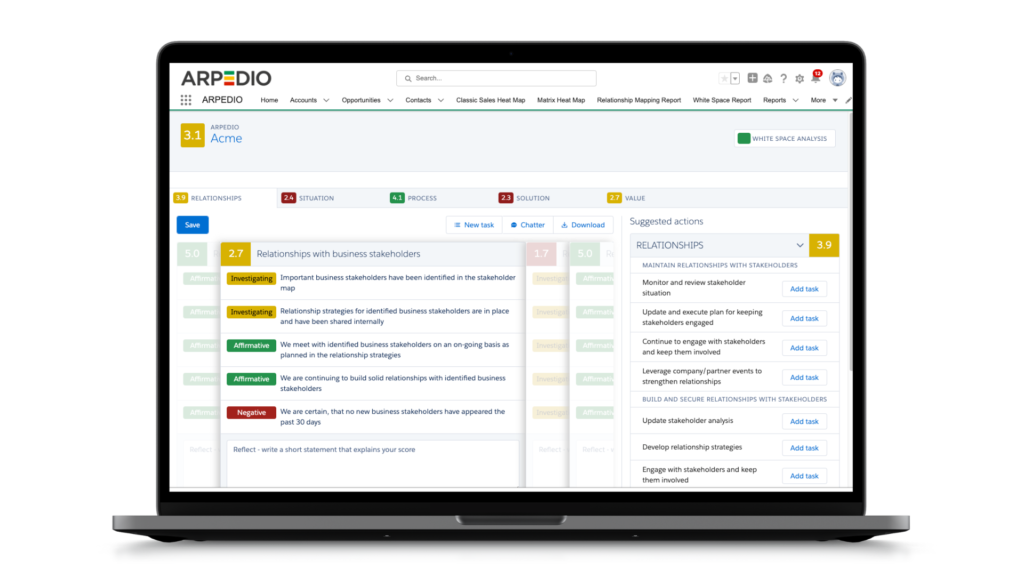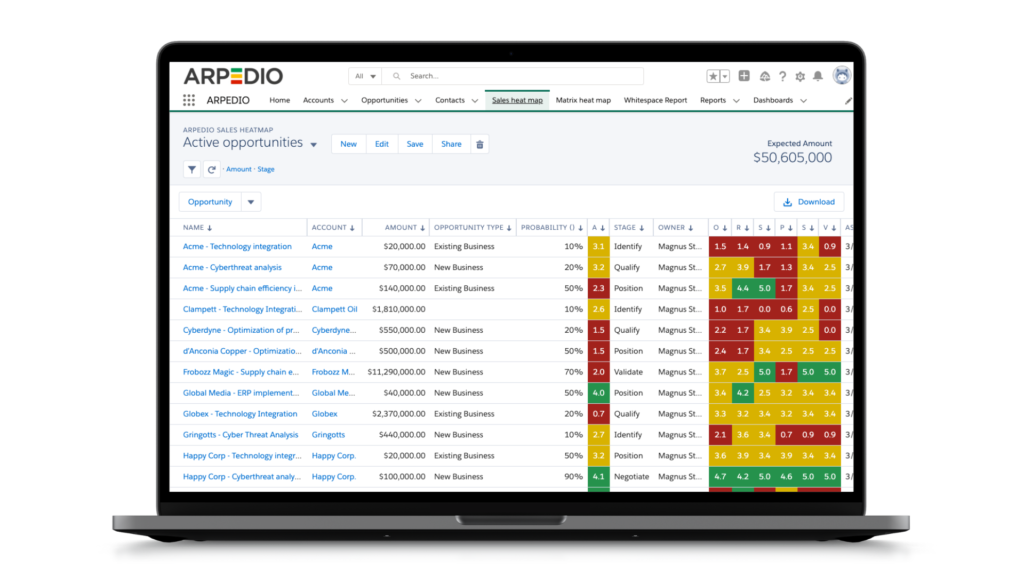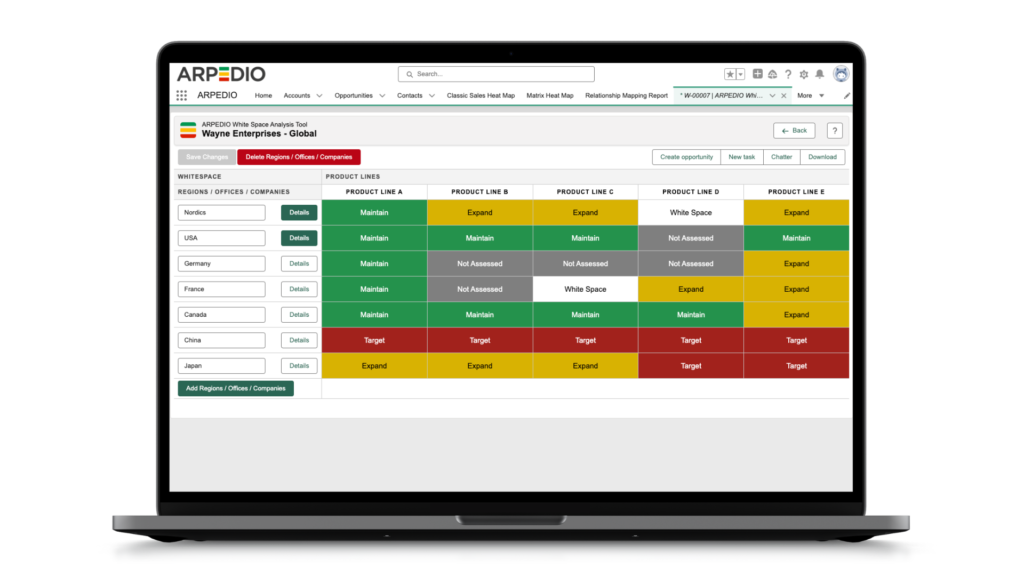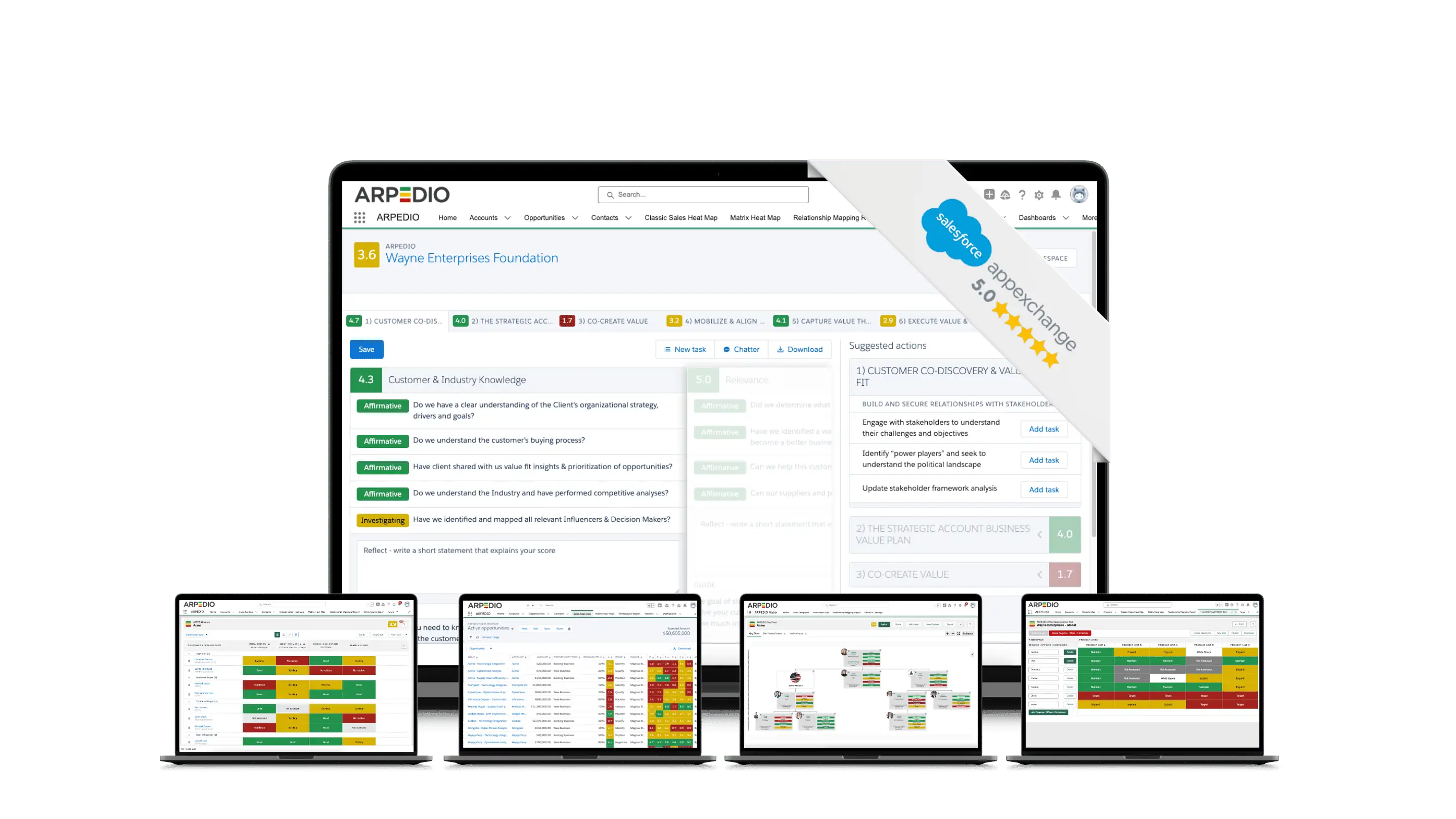Welcome to our comprehensive guide on lead scoring! If you’re looking to enhance your sales funnel and drive more revenue, lead scoring is a strategy that you need to embrace. In this article, we will explore what lead scoring is, why it is important for sales, how it works, its benefits, best practices for implementation, and the tools and technologies available. By understanding lead scoring and implementing it effectively, you can optimize your marketing strategies and boost your sales performance.
Before we delve into the details, let’s establish a clear understanding of lead scoring and its role in the sales funnel. Lead scoring is a system that allows businesses to quantify and rank their leads based on predetermined criteria. This process helps to identify and prioritize leads with the highest potential for conversion, allowing your sales team to focus their efforts and resources on those prospects with the greatest likelihood of making a purchase.
With a well-implemented lead scoring system in place, you can streamline your sales process, improve your conversion rates, and boost your overall sales effectiveness. By identifying qualified leads and nurturing them throughout the buyer’s journey, you can maximize your marketing ROI and achieve higher revenue growth.
In the following sections, we will delve deeper into the importance of lead scoring for sales, the process of lead scoring, the benefits it brings to your marketing strategies, best practices for implementation, and the tools and technologies available to support your lead scoring efforts. So, let’s dive in and discover how lead scoring can take your sales performance to new heights!
Why is Lead Scoring Important for Sales?
Lead scoring plays a crucial role in driving sales effectiveness and maximizing revenue. By prioritizing leads based on their likelihood to convert, businesses can focus their efforts on high-value prospects and optimize their sales process. Let’s explore the key reasons why lead scoring is of utmost importance for sales.
Improved Sales Effectiveness
Lead scoring enhances sales effectiveness by providing valuable insights into the quality of leads. With lead scoring, sales teams can identify and prioritize leads that are more likely to convert, allowing them to allocate their time and resources more efficiently. By targeting high-quality leads, sales representatives can engage in more meaningful and productive conversations, significantly improving their conversion rates and overall sales performance.
Prioritization of Leads
Lead scoring enables businesses to prioritize leads based on their level of engagement and interest. By assigning scores or rankings to leads, sales teams can quickly identify the most qualified and promising prospects. This prioritization ensures that sales reps focus their attention on leads with the highest potential, increasing the likelihood of closing deals and generating revenue. By avoiding wasted efforts on unqualified leads, businesses can optimize their sales process and allocate their resources effectively.
How Does Lead Scoring Work?
In order to optimize your sales funnel and improve conversion rates, it is essential to understand the process of lead scoring. Lead scoring helps you identify and prioritize leads based on their potential to become customers. By assigning scores to leads based on specific criteria, you can focus your resources on those with the highest likelihood of conversion.
Lead qualification is a crucial component of the lead scoring process. It involves evaluating leads based on their fit and interest in your product or service. This qualification can be done through various methods, such as conducting surveys, analyzing website behavior, or tracking engagement with your marketing materials.
The criteria used for lead qualification may vary depending on your business and industry. Some common factors to consider include the lead’s demographics, firmographics, buying intent, and engagement level. By defining and consistently applying these qualification criteria, you can ensure a standardized and objective lead scoring process.
Assigning Scores
Once leads have been qualified, the next step is to assign scores based on their attributes and behaviors. This scoring can be done manually or using automated lead scoring tools. The scores are typically based on a predetermined scale, with higher scores indicating a higher likelihood of conversion.
Lead scoring models can be simple or complex, depending on your business needs. Simple models may assign scores to leads based on a few key attributes, while complex models take into account a wide range of factors, such as lead source, industry, and previous interactions with your brand.
It is important to regularly review and update your lead scoring criteria and models to ensure their relevance and accuracy. As your business evolves and customer behaviors change, you may need to refine your scoring methodology to align with new market trends and insights.
Benefits of Lead Scoring
Implementing an effective lead scoring process brings numerous benefits to your sales and marketing efforts. By prioritizing leads with higher scores, you can allocate your resources more efficiently, focusing on those most likely to convert. This targeted approach helps optimize your sales funnel and improve the overall effectiveness of your customer acquisition strategies.
Lead scoring also enables better collaboration between sales and marketing teams. With a clear understanding of lead quality and readiness, both teams can align their efforts and tailor their messaging to drive conversions. This collaboration fosters stronger lead nurturing, resulting in increased customer engagement and loyalty.
Additionally, lead scoring allows you to measure and track the performance of your marketing campaigns more accurately. By analyzing the scores of converted leads, you can identify the most effective lead sources, campaigns, and messaging. This data-driven insight enables you to optimize your marketing spend and maximize your return on investment.
Benefits of Implementing Lead Scoring
Implementing lead scoring in your marketing strategies can bring about significant benefits for your business. Let’s explore how lead scoring can improve lead management and increase marketing ROI, ultimately enhancing overall business efficiency.
Improved Lead Management
Lead scoring allows you to prioritize and categorize leads based on their level of interest and engagement with your brand. By assigning scores to individual leads, you can identify high-quality prospects and allocate your resources effectively. This targeted approach enables you to focus on leads that are most likely to convert, resulting in more efficient lead management.
Increased Marketing ROI
Lead scoring helps you optimize your marketing efforts by identifying the most valuable leads. By leveraging lead scoring insights, you can tailor your marketing campaigns to specific segments, delivering personalized content that resonates with your audience. This targeted approach not only increases the effectiveness of your marketing efforts but also maximizes your marketing ROI.
With lead scoring, you can allocate your budget and resources more efficiently, ensuring that each marketing initiative is directed towards prospects with the highest potential for conversion. This targeted approach eliminates wasted efforts and increases the likelihood of generating meaningful results from your marketing campaigns.
Implementing lead scoring allows you to nurture leads effectively, guiding them through the sales funnel and accelerating the conversion process. By focusing on high-scoring leads, you can provide tailored messaging and offers that address their specific needs and pain points. This personalized approach enhances the customer experience, ultimately increasing the likelihood of closing deals and driving revenue.
Furthermore, lead scoring provides valuable insights into the effectiveness of your marketing strategies and campaigns. By analyzing the scores assigned to leads and their corresponding conversion rates, you can identify areas for improvement and optimize your marketing efforts accordingly. This data-driven approach empowers you to make informed decisions and continuously enhance your marketing strategies to achieve better results.
Overall, implementing lead scoring brings numerous benefits to your marketing strategies. With improved lead management and increased marketing ROI, you can drive revenue, enhance customer experience, and optimize your overall business efficiency.
Best Practices for Effective Lead Scoring
Implementing lead scoring in your marketing strategies can significantly enhance your sales funnel and drive revenue. However, to ensure successful implementation, it is important to follow best practices that optimize your lead scoring process. Here are some tips and strategies to help you achieve effective lead scoring:
- Data Analysis: Start by analyzing your existing data to identify patterns and trends. This will help you determine the key attributes that indicate a high-quality lead, allowing you to assign appropriate scores.
- Collaboration between Sales and Marketing Teams: Foster close collaboration between your sales and marketing teams to define lead scoring criteria and align on the qualification process. Regular communication and feedback will ensure that both teams are working towards the same goals.
- Continuous Optimization: Lead scoring is not a one-time activity. Regularly evaluate and optimize your scoring criteria based on the performance and feedback from your sales team. This will help you refine your process and improve the accuracy of lead qualification.
- Regularly Review and Update Scoring Criteria: As your business evolves and customer behaviors change, it is essential to review and update your lead scoring criteria to stay relevant. Adjusting your scoring model based on current market dynamics will ensure that your scoring remains effective.
- Segmentation: Consider segmenting your leads based on different criteria such as industry, company size, or engagement level. This can help you tailor your marketing efforts and prioritize leads within each segment.
By implementing these best practices, you can maximize the impact of lead scoring on your marketing strategies and improve the overall efficiency of your sales process.
Tools and Technologies for Lead Scoring
When it comes to lead scoring, having the right tools and technologies in place can significantly enhance the efficiency and effectiveness of your lead scoring process. With the advancements in automation and data analytics, companies now have access to a wide array of solutions that can streamline lead scoring and boost their sales efforts.
Lead Scoring Software: Implementing lead scoring software can provide you with a comprehensive platform to manage and analyze lead data. These software solutions not only simplify the lead scoring process but also allow you to track and measure the engagement levels and behaviors of your leads. By leveraging the power of data-driven insights, lead scoring software enables you to make informed decisions that can drive better sales outcomes.
Automation: Automation plays a crucial role in lead scoring by eliminating manual tasks and accelerating the overall process. By automating lead qualification and scoring, you can save valuable time and resources while ensuring consistency and accuracy in your lead scoring efforts. Automation also enables real-time updates and notifications, allowing you to take prompt action on high-priority leads.
In addition to lead scoring software and automation, there are other tools and resources available that can further enhance your lead scoring process. These may include customer relationship management (CRM) systems, such as Salesforce, marketing automation platforms, and data enrichment tools. By leveraging these technologies, you can streamline your lead scoring process, improve data accuracy, and optimize your marketing strategies.
To summarize, utilizing the right tools and technologies is essential for successful lead scoring. Lead scoring software and automation solutions can help you efficiently manage and analyze lead data, leading to better sales outcomes. It is crucial to leverage these resources to gain a competitive edge in today’s fast-paced business environment.
Conclusion
In conclusion, lead scoring is a powerful tool that can significantly enhance your sales funnel and drive revenue. By effectively qualifying and prioritizing leads, you can allocate your resources more efficiently, focusing on high-value prospects and increasing conversion rates. Implementing lead scoring best practices and leveraging relevant tools and technologies can further optimize your lead scoring process and maximize its impact on your marketing strategies.
Lead scoring allows you to identify the most promising leads, enabling you to tailor your approach and messaging to their specific needs, increasing the likelihood of successfully converting them into customers. By utilizing data analysis and continuous optimization, you can refine your lead scoring criteria and further improve the accuracy of your lead qualification process.
Furthermore, the use of lead scoring software and automation tools streamlines the entire lead scoring process, making it more efficient and saving valuable time. These technologies provide real-time insights, ensure consistent and standardized scoring, and enable seamless collaboration between sales and marketing teams. As a result, your marketing and sales efforts become more aligned, leading to improved lead management and overall business efficiency.
FAQ
What is lead scoring?
Lead scoring is a process used by businesses to evaluate and rank leads based on their likelihood to convert into customers. It assigns a numerical value or score to each lead, considering factors such as demographic information, engagement levels, and behavior, to determine their potential value to the sales team.
Why is lead scoring important for sales?
Lead scoring is crucial for sales as it helps prioritize leads and focus resources on high-value prospects. By identifying and prioritizing leads with the highest scores, sales teams can optimize their efforts, increase conversion rates, and improve sales effectiveness.
How does lead scoring work?
Lead scoring involves a process of assigning scores to leads based on various criteria. These criteria typically include demographic information, engagement data, such as website visits and email opens, and behavior data, like download activity or webinar attendance. The lead scoring model is then used to determine the level of interest and sales readiness of each lead, helping businesses qualify and prioritize their leads for sales follow-up.
What are the benefits of implementing lead scoring?
Implementing lead scoring offers several benefits for businesses. It improves lead management by helping sales teams focus their efforts on high-potential leads, increasing conversion rates, and boosting overall sales effectiveness. Lead scoring also enhances marketing ROI by ensuring resources are allocated efficiently to leads most likely to convert.
What are the best practices for effective lead scoring?
To ensure effective lead scoring, it is essential to analyze data consistently, collaborate between sales and marketing teams, and continuously optimize the scoring model. Other best practices include aligning the scoring criteria with the sales funnel, regularly reviewing and updating the scoring process, and leveraging technology and automation to streamline the lead scoring process.
What tools and technologies are available for lead scoring?
There are various tools and technologies available to facilitate lead scoring. Lead scoring software, such as Salesforce, provides features and functionalities specifically designed to score and evaluate leads. Additionally, automation tools and resources, such as customer relationship management (CRM) systems and marketing automation platforms, can help streamline the lead scoring process and make it more efficient.
